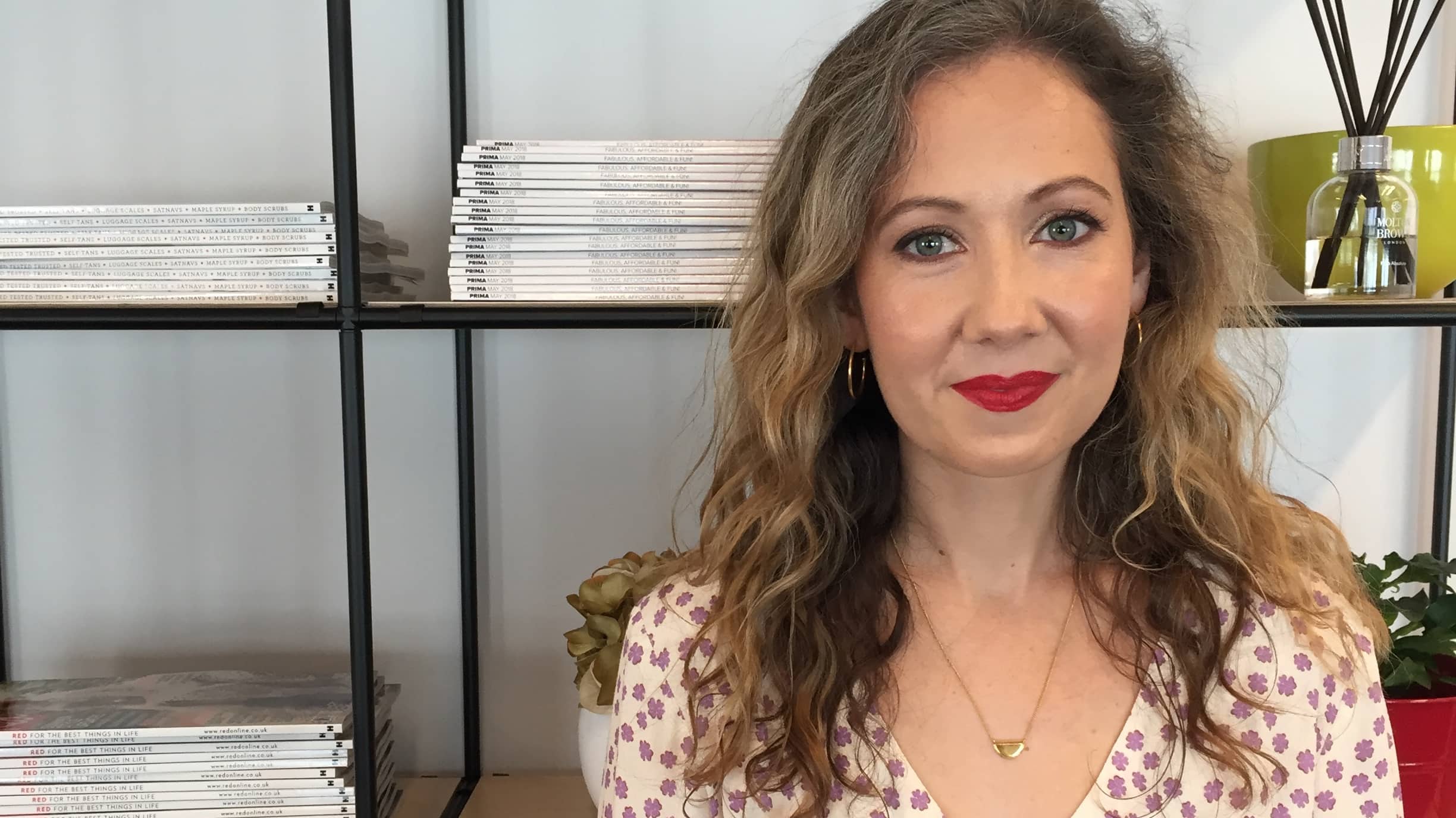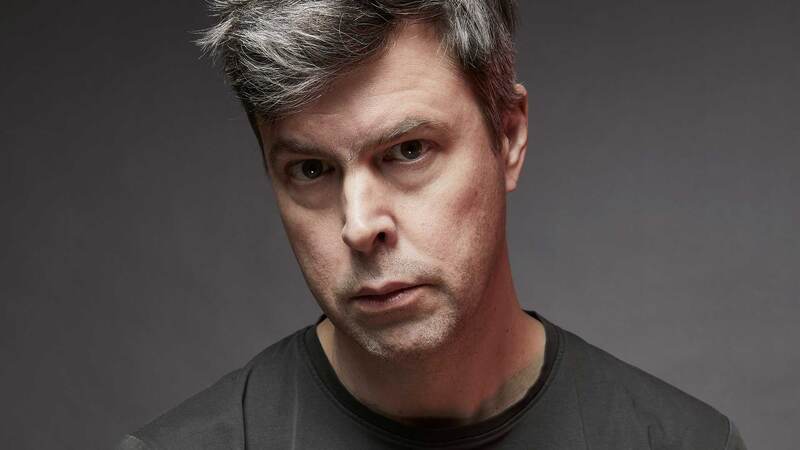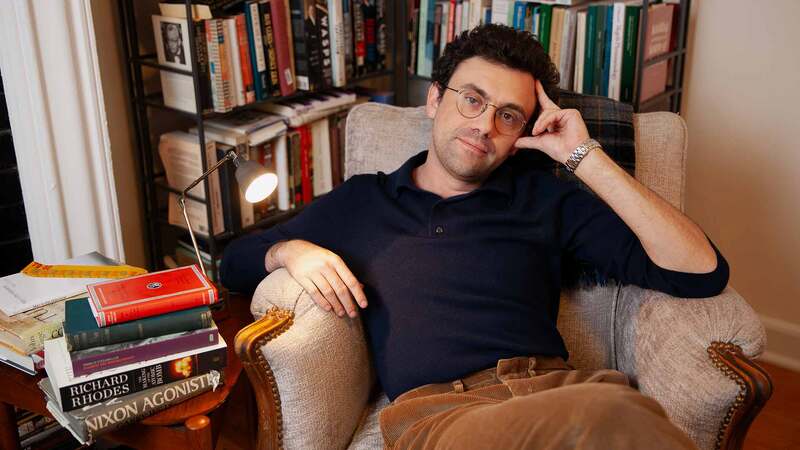You are viewing your 1 free article this month. Login to read more articles.
Natasha Lunn | 'That’s all I really want this book to do: get people to pay attention to those they love'
 Caroline Sanderson
Caroline SandersonCaroline Sanderson is a non-fiction writer, editor and books journalist. Her books include a travel narrative, A Rambling Fancy: in the F ...more
Natasha Lunn’s exploration of lov, which grew out of a popular email newsletter, draws on a wide cousel to interrogate all kinds of kinship

Caroline Sanderson is a non-fiction writer, editor and books journalist. Her books include a travel narrative, A Rambling Fancy: in the F ...more
Unlike all the self-help titles focusing on love gone wrong, Conversations on Love by Natasha Lunn takes a radically different approach to what we talk about when we talk about love. It’s a bracing, yet profoundly positive book, which beautifully concentrates our minds on how we can appreciate, cherish and nurture our relationships with all those who are dear to us.
Acquired by Viking for a six-figure sum following a 16-way auction, Conversations on Love arose out of an email newsletter of the same name, created four years ago by Lunn, who is a journalist and the features director of Red magazine. Centred on her interviews with an array of writers and experts about matters of love and longing, the newsletter has almost 10,000 subscribers, a figure which will almost certainly rocket on publication of the book. When I speak to Lunn on the phone, I ask how the notion of interrogating “the many different shapes that love can take in a life” evolved.
A lot of the people I interviewed had this real revelation about how important love is, only after losing someone. That seems so sad to me. So Conversations on Love became a way of asking, ‘Is there a way we can prioritise love in our lives before we lose it?
“A tapestry of things led me to it, but one of them was that in my job I would often interview people and afterwards find that I’d have all this material about love which wouldn’t fit into the structure of a traditional magazine feature. I interviewed David Sedaris, for example, and even though he doesn’t like talking about feelings, we had this long discussion about the tender love you feel after a fight with your partner: how it gives you a sense of the fragility of what is between you. On the Tube home I thought, ‘I’d really like love to be the centre of some interviews, not the subplot, because that is how it is in our lives.’”
More personally, Conversations on Love came out of her own experience of love, particularly in early life, Lunn tells me. “When I was younger, I spent so long thinking about love, reading about it, dreaming about
it. I was obsessed by it. Then when I entered my thirties, I realised that I still knew almost nothing about it. And now that I’m with my partner [Dan, a primary school teacher], and have found the one person who I thought would complete every- thing, I’m beginning to understand how many different forms of love you actually need to lean on in life.”
Accordingly, the scope of Conversations on Love is a broad one, taking in our relationships with our parents and siblings, and with our friends as well as our lovers. The book is packed with wisdom, so much so that you’ll want to underline things on every page; from Susan Quilliam’s assertion that “what people lose in a long-term relationship is kindness”, and Juno Dawson’s call to remember that “no one is too busy to reply to a fuck- ing text message”; to Poorna Bell’s enchanting likening of her family to a “solar system” in which its members “draw strength from being in each other’s orbit”. Alain de Botton, Roxane Gay, Dolly Alderton, Lisa Taddeo and Lemn Sissay are among the other eye-catching contributors who also weigh pithily in on aspects of love.
It’s striking that it is to writers that Lunn, a lifelong lover of reading, so often turns to for her conversations. “I am a fan of many of these writers, but I guess what they all share is the fact that they spend a long time in their own heads, sifting through pieces of their lives. So I find they are able to answer my questions in a beautiful and thoughtful way. I love speaking to people who are constantly dig, dig, digging for some truth in life.”
Normal people
Prior to writing the book, Lunn completed a course on psychodynamic couples’ therapy at the Tavistock Centre in north London, and the experience gave her enhanced clarity on many of the issues she writes about. The fact that she consults “ordinary people” as well as such experts on relationships as Philippa Perry, Stephen Grosz and Susie Orbach, is deliberate. “As well as many excellent books about therapy, there are also so many amazing first-person stories. So I thought it would be interesting to come at such questions from the point of view of someone who isn’t an expert, in order to try and bridge the gap between the lessons that you might learn from psychotherapists, and those real-life love stories that make you feel hopeful and seen, and that you can learn from”.
It’s important to stress that Conversations on Love is much more than a collection of interviews. The transcripts of Lunn’s conversations are threaded through with her own elegant and heartfelt commentary on how the issues discussed have played out in her own life; from her propensity to idealise the men she dated in her teens and twenties, to the heartache of miscarriage, and the emotional metamorphosis brought about by becoming mother to a baby daughter last year.
Overall, the book is arranged in three parts: How do we find love? How do we sustain love? and How can we survive losing love? This structure emerged organically as Lunn considered how the book might address the various preoccupations of those who had written to her after reading her newsletters. “I’d think: ‘Right, have I got an interview for those readers who I know who are trying to find love, whether after divorce or for the first time? Have I got a conversation for those who are trying to sustain a relationship? Have I got something for those who have lost someone?” Lunn’s care in reflecting our evolving perceptions of love means this is a book you could give with equal confidence to a young adult who has fallen in love for the first time, or to someone in later life whose loved one has departed or died.
While our preoccupation with matters of the heart is as old as the hills, I ask Lunn if this time of pandemic and separation has renewed our need to be close to those we love; and perhaps also given us a greater appreciation of how important they are to us. She concurs, but also sounds a note of caution. “We are so bad at losing track of a feeling. Even now, while we are treasuring seeing our friends and family again, I suspect that when normal life resumes, it won’t take long for us to lose that feeling. So my hope is that the book might help us hold onto it for a bit. We know we love these people and want to be around them, but often it’s about acting on that and showing that we care.”
Perhaps this is the most profound lesson we can take from Conversations on Love, as we emerge from lockdown, counting our losses and hopefully our blessings too. As Lunn puts it: “A lot of the people I interviewed had this real revelation about how important love is, only after losing someone. That seems so sad to me. So Conversations on Love became a way of asking, ‘Is there a way we can prioritise love in our lives before we lose it?’
Lunn tells me that her own father, who is in his sixties, spoke to his sister about the tragic death of their baby sister many decades previously for the first time after reading Conversations on Love. “And then when I was recording the audiobook, one of the people in the studio said to me that after listening to the recording, she made a point of calling her mum, and also organised a Skype call with her friend in New York. That’s all I really want this book to do: get people to pay attention to those they love.”
Book extract
Love is rarely a pristine story. There will be shiny pavement kisses and painfully slow taxi rides. There will be orgasms and diarrhoea, promotions and debt, tricky relatives and attractive strangers and claustrophobic, mundane days; and we have to find away to keep connecting with those we love—and trying to understand ourselves through all of it. We have to rebuild the relationships we value again and again, even when our hearts or egos are wounded (perhaps especially then).









